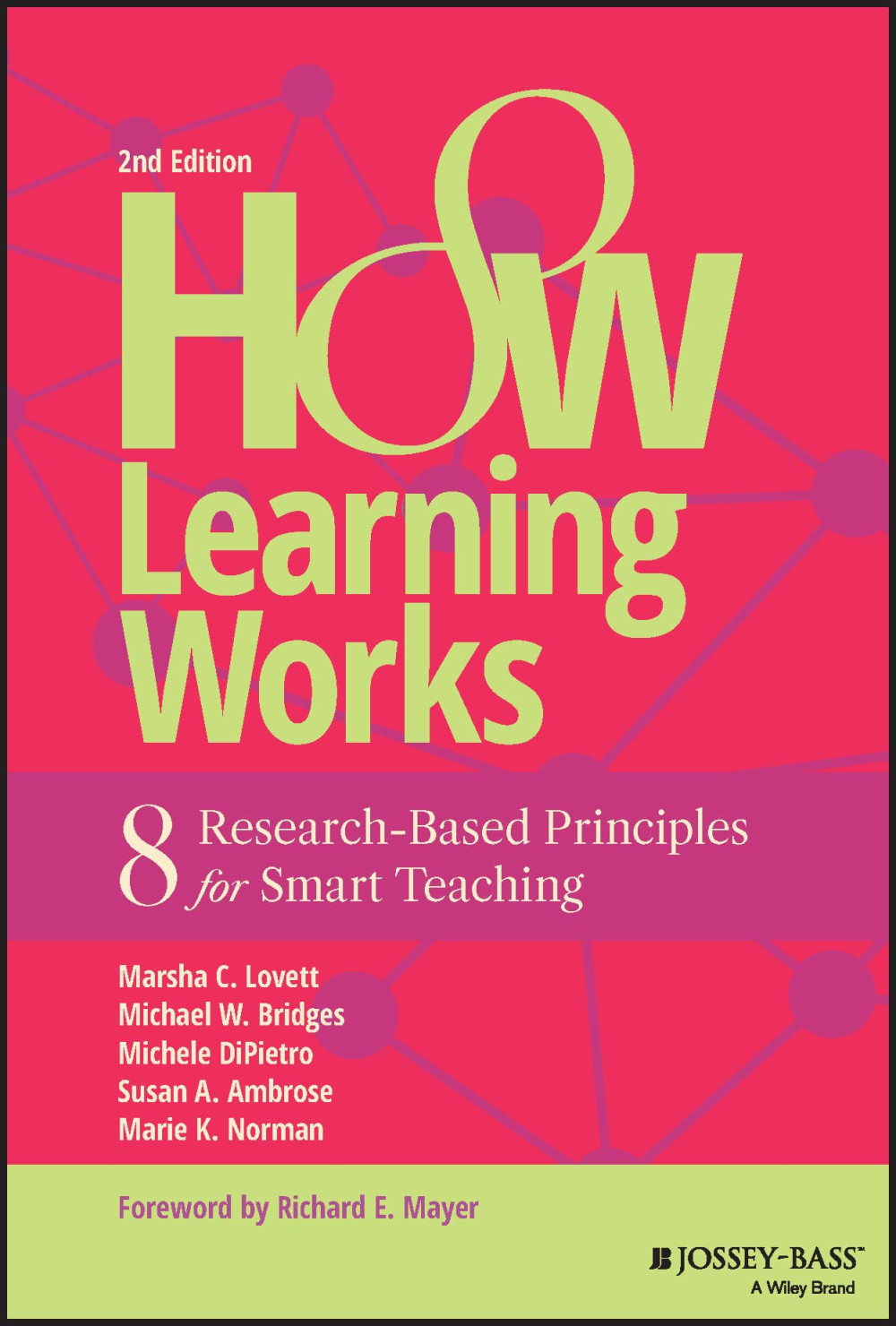How Learning Works: Eight Research-Based Principles for Smart Teaching
This is a highly valuable book that you will use continuously in your teaching or as your prepare to teach, whether as a teaching assistant, guest lecturer, or instructor, whether in post-secondary institutions or other spaces. It is clearly written with ample examples of how to implement the principles. In particular, each chapter begins with a short story that perfectly introduces the discussion of the learning principle.

Here is an example of one of the stories:
Too Many Reasons
I used to think I was pretty good at getting students to participate in class, but lately I’ve been facing a “wall of silence.” Knowing a few colleagues who do mid- semester feedback in their courses, I decided to give it a try and specifically asked my students why they don’t participate more during class. Boy, did they give me an earful! One student wrote that, on top of a full course load, they are working late hours at two jobs. By the time they get to my class, they are too exhausted to think. One reported that she (I’m assuming it’s a she) tried participating early in the semester but stopped when she didn’t feel like her contributions were appreciated— like the time two male students made essentially her same points and were praised for the stolen ideas. Another disclosed that they are on the autism spectrum and have a hard time navigating social interactions, like when to jump into a discussion without being rude or weird, or how to disagree without sounding angry or condescending. . . . To avoid the uncertainty, they simply don’t participate. Yet another mentioned feeling hurt when they were misgendered in class and, after that, they disengaged. And yet another wrote that professors, especially Southern ladies like me, don’t really want to hear from their Black students. That stung. I try not to make assumptions about my students, but they seem to have no problem making assumptions about me. On and on it went. There were as many reasons for not participating as there were students. I tried to find some common theme that would point to one clear solution, but no. I want to help my Why Do Students’ Identities and Stages of Development Matter for Learning? students, I truly do. But each one seems to want something different from me, and I can’t personalize my course for each individual student. Plus, now I’m even afraid I’ll say the wrong thing and make it worse. What should I do? Professor Charlotte Calhoun